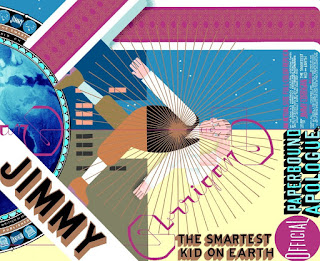(Extra Credit) Reading Notes: Narayan's Ramayana, Part D
As I finished the Ramayana, I found a few parts of the narrative intriguing.
The first thing that sticks out in my mind is the honor of one-on-one combat, specifically the code which leads Rama not to attack his opponent when he is "in a faint" and therefore susceptible to being killed. This seems to underscore a deeply masculinist, tough-guy feeling about fighting -- that a 'fair fight' is the only kind of fight acceptable, and for things to be fair, they must be equal between the male combatants. On the contrary, I once heard from a police officer that no fight is a fair fight -- it's just a fight, and you've gotta do what you've gotta do to win. I subscribe to this view, but I still think that the ancient ideal of honor and how it's reflected in modern fighting etiquette -- no gouging eyes, no hitting/kicking the crotch -- shows that, throughout time, people (or at least men, who I can speak for) believe that to be incapacitated 'unfairly' (especially from a hit to that place which very literally defines one's masculinity) means to be emasculated and an unworthy opponent. Interesting ramble, I think.
Also, I found Rama's test of Sita and immediate reacceptance of her afterward deeply problematic. While I understand Rama's hesitancy to a point, in that he had no idea what happened when he was gone, his swing between harsh punishment/test and immediate reacceptance struck me as out of character and as a problematic portrayal of a hero -- not to mention a hypocritical one, considering his attitude toward Sugreeva's wife. That said, I appreciate the Ramayana's (or Narayan's, a least) handling of the dilemma, calling Rama out for being unfair, acting unlike himself, and behaving in a way that is unfit for his reputation and his status as an avatar of Vishnu. This sort of metacommentary -- other characters speaking as the voice of the narrator/audience -- serves to give the narrator added authority and to reclaim Rama as a voice of reason and morality in the epic.
Overall, I really liked the Ramayana. It never got dull, like some of the ancient Greek epics were wont to do. I appreciated the different perspectives on stuff like religion, honor, morality, and interpersonal relationships, since all of my perspectives on those have been formed by an entirely Western, mostly white canon of literature.
All's well that ends well, I guess. Source.


Comments
Post a Comment